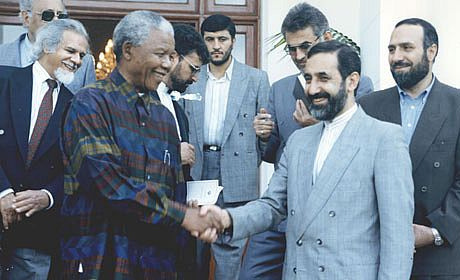Unprecedented Number of Challenges in Foreign Policy

To what extent would you consider the recent economic problems as being caused by the international sanctions? What policies would you pursue with regard to foreign policy to fight against the sanctions?
First I must say that from the beginning of the Islamic Revolution, we have been faced with numerous sanctions imposed by the West and have fortunately been able to resist against them.
Of course, during the past few years, new international and unilateral sanctions have been imposed against our country. These sanctions are oppressive and contrary to the claims of those who have adopted them, they are aimed at putting pressure on the people of Iran. Naturally, these sanctions have impacted Iran’s economy and created problems for our people. Nevertheless, a major part of the present economic problems is caused by the undesirable consequences of domestic tension.
In my opinion, if we had had better economic strategies and economic decisions had been made based on the law and with prudence, our problems would have been less.
Promotion of national unity and the formation of a government supported and respected by the people will certainly help our officials to negotiate with the foreign parties from a very strong position. In order to fight against the sanctions, we must reconstruct our foreign relations. The existing problems were not caused only by the hostilities; our slogans and some of our actions were also responsible in this regard. It is necessary to promote our relations with our neighbors. We can draw new relations with many European countries.
It seems that nuclear negotiations in the framework of the P5+1 have not practically had any progress. What is your proposed solution to advance these negotiations?
In negotiating with foreign countries, including the P5+1, it is very important for the negotiating diplomats to enjoy multilateral domestic support. The other issue is to use all the existing capacities in our country at the expert level in the nuclear negotiations. Nuclear negotiation is a very sensitive matter and Iran’s prominent diplomats are well-equipped to deal with this matter. Our negotiating team in talks for Resolution 598 of the United Nations, which consisted of the skillful experts of the Foreign Ministry, succeeded in ending a very complicated negotiation with Iraq and the UN with honor. Nuclear negotiation is not more complicated than the Resolution 598 negotiation. By using all of our expert forces, we will be able to succeed in the nuclear issue as well. We pursue dialogue and are ready to seriously enter quality negotiations without wasting any time. I am sure that if the other party also shows its honesty, we will be able to remove the concerns of both sides through talks.
What is your outlook of Iran-US relations? Do you believe that the time for bilateral talks between Iran and the US has come? If so, what should our strategy be to begin and conclude these talks?
Principally, except for the Zionist regime which we do not recognize, there is no problem with talking or establishing relations with the other countries. We seek dialogue and interaction and believe that many of the existing international problems can be solved through this method. Of course, dialogue and interaction is a two-way street and the honesty and intention of the other party can lead to the success of these talks, otherwise such an interaction not only will be futile but it can also lead to increasing mistrust.
The Supreme Leader has stated the latest position of our country with regard to interaction with the US. We are prepared to enter negotiations within the framework of his position if the other party shows its honesty and negotiates without any hidden agenda and with equal footing.
How would you assess the present situation of our foreign policy? What are the strong and weak points of the present government in this area?
Foreign policy is a subject which does not need controversy and chaos; in this tumultuous world, we must rather pursue our national interests with prudence and wisdom. Unfortunately, during the past few years, our foreign policy has been managed with radicalism. I have always put emphasis on relying on the principles of the Islamic Revolution in interacting with others and not being intimidated by world powers. At the same time, I believe that this revolutionary and principled policy must be accompanied with wisdom and prudence so that the enemy would not have any excuses. I believe that even under the existing international conditions and despite all the present problems, we will be able to pursue much more desirable foreign relations.
What are the foreign policy priorities of your government?
The present international situation is, on one hand, the result of the hostile measures and propaganda of the enemies and, on the other hand, the result of our improper actions in some areas. We will follow moderation in our foreign policy. We will neither oppress anyone, nor tolerate others’ oppression. We believe that we can have respectable relations with most of the countries through an interactive and moderate foreign policy.
The approach of my government with regard to foreign policy is based on the following principles:
· The principles of the constitution
· Reduction of tension in foreign relations and using them to solve the economic problems of the country
· Interaction with all the countries of the world which we recognize
· Fighting against the greed of world powers
· Expansion of relations with the neighboring countries, the world of Islam, and the non-aligned countries

